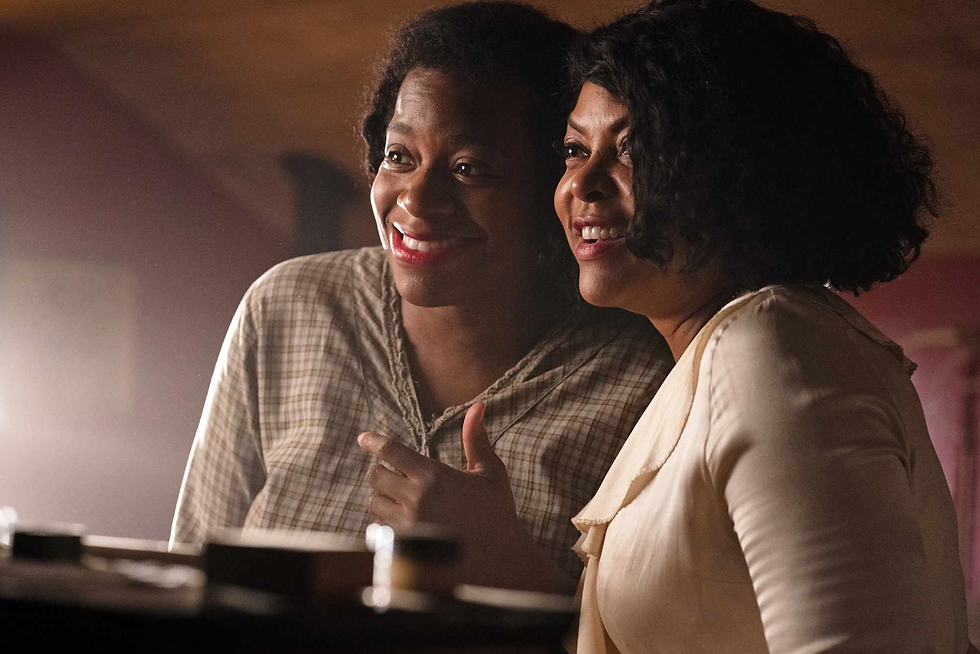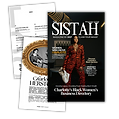The Injustice of Pretty Privilege: An Analysis Through The Color Purple
- Zhateyah YisraEl

- Sep 5, 2025
- 3 min read
Updated: Sep 13, 2025

On a long flight to Lihue, Hawaii, I re-watched The Color Purple: The Musical. I had seen the original film as a child, but this time, the themes felt heavier, sharper. Scenes of parental abuse, incest, and servitude under unbearable strain were devastating. Yet one theme wouldn’t leave me: pretty privilege.
It’s the unspoken currency of desirability, a force that shapes who gets love, who gets dismissed, and who gets discarded. In The Color Purple, we see its claws in Celie’s neglect, Shug Avery’s praise, and the silent rules women are forced to live under.

When Beauty Becomes a Weapon
Pretty privilege creates a cruel divide—rewarding some, while dehumanizing others. Celie is overlooked, even abused, while Nettie and Shug Avery are admired.
“When beauty becomes currency, humanity gets reduced to profit and loss.”
This isn’t just fiction. Research has shown that those deemed attractive are more likely to be hired, trusted, and celebrated, regardless of skill. Meanwhile, those outside the “standard” are met with indifference—or worse.
The Desire to Change
Celie’s longing for Shug Avery’s beauty and spirit is more than admiration—it’s survival. When society exalts one archetype and scorns another, comparison is inevitable.
The same pressures echo today. From Eurocentric hair standards to Instagram filters, the message is clear: worth is tied to desirability. And when you’re constantly told you’re not enough, self-esteem becomes fragile ground.
The Responsibility of the Privileged
Shug Avery is a complex figure. She benefits from pretty privilege, yet she chooses moments of solidarity—encouraging Celie to rise up, claim her voice, and demand better.
“Those who benefit from privilege can either reinforce harm—or disrupt it.”
The lesson here is timeless. Whether it’s beauty, wealth, or influence, privilege carries responsibility. True sisterhood means using advantage to break barriers, not reinforce them. Characters like Shug, Sophia’s defiance, and Mister’s father’s rebuke remind us: injustice needs silence to survive.

Beauty, Color, and Whiteness
Pretty privilege doesn’t exist in isolation. In The Color Purple, who was deemed desirable often depended on assimilation to whiteness—skin tone, hair texture, and class.
Fast forward, and the pattern persists. Colorism continues to shape wages, dating preferences, and social access. Within Black communities especially, lighter skin tones are still rewarded while darker tones face exclusion. Pretty privilege, then, is tied not just to gender but to race and history.
Loving What God Has Made
One of the most striking lines in the musical belongs to Shug Avery:
“When you love what God has made, God is loving you, and you are loving God.”
It’s a declaration of freedom. To love yourself—outside the world’s shifting ideals—is radical. It’s holy. It is reclaiming identity from systems designed to make you doubt it.
The Power of Redemption
The heart of The Color Purple lies in transformation. Celie learns to teach people how to treat her, walking with dignity, creating independence, and forgiving not to excuse—but to release.
Pretty privilege feeds on shame and silence. But Celie’s journey proves we can step beyond it. When freedom comes, you don’t turn back. You keep moving forward, unshaken.
Pretty privilege is a chain. For some, it grants favor. For others, it strips dignity. But like Celie, we can break it. We can choose to love what God has made, to resist shallow hierarchies, and to lift one another beyond comparison.
Because real beauty isn’t in privilege. It’s in freedom.
Further Reading
Walker, Alice. The Color Purple. Harcourt Brace Jovanovich, 1982.
Hamermesh, Daniel S., and Jeff E. Biddle. Beauty and the Labor Market. American Economic Review, 1994.
Hunter, Margaret. The Persistent Problem of Colorism: Skin Tone, Status, and Inequality. Sociology Compass, 2007.
Winfrey, Oprah, et al. The Color Purple: The Musical (Film adaptation, 2023).
ABOUT ZHATEYAH
Zhateyah YisraEl is a multi-venture entrepreneur, writer, and creative strategist passionate about reshaping narratives for Black women and amplifying underrepresented voices. As the founder of Z Branding & Business Solutions and visionary behind SISTAH Magazine, she has built an ecosystem that celebrates Black womanhood, cultural pride, and generational wealth.
Zhateyah’s writing focuses on identity, spirituality, empowerment, and economic freedom — weaving together storytelling, history, and practical wisdom to inspire action.
Buy my latest book: From Hot to Wholesome







.png)
.png)



Comments